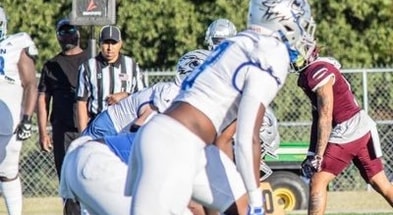Mississippi State legend Ron Polk celebrates 80th birthday

There isn’t much in this life that Ron Polk hasn’t experienced at this point.
From his entrance into this world six months prior to D-Day and in the heat of a World War, Polk’s life has been all about experience. Baseball was the avenue that would take Polk on his adventures, and he hasn’t stopped going.
Polk’s own home has been built into a museum of sorts, chronicling a journey like none other across the great sport of college baseball. The coach isn’t even sure his oven works in his kitchen due to the lack of use for it, but he’s got nearly every square inch of his abode filled with stories one couldn’t even conjure in a dream.
As Friday brings upon year 80 for the legendary figure, it doesn’t appear those adventures will be stopping any time soon.
Polk is one of one
For anyone that knows the man, Polk is anything but a conformist and he doesn’t plan on entering the new age of technology. Taking a walk through the Bryan Building, the sound of finger tips pecking at typewriter keys travels through the air and Polk won’t be sending any iMessages from his flip phone. Sit and talk with the coach for only a moment, however, and a lesson or two will be learned.
The most “old school” acts in the coach’s arsenal is what might leave the largest legacy. Every player that Polk has mentored over the years receives a birthday card. A bulging rolodex of addresses and phone numbers has been put to good use over the years but it’s all worth it for a coach whose life has been built on relationships.
“It proves the type of man that he is,” former Mississippi State outfielder Brooks Bryan said of his coach. “I get a birthday card, an anniversary card and a Christmas card every single year. He’s done that for every player he’s ever coached. There are at least five sentences in every card that he writes and he mentions your kids, your wife, and things that he remembers about you.”
It all began for Polk when he was born on January 12, 1944 in Boston, Mass., but life and sports would take him across the country. Polk’s family moved to Phoenix, Ariz., when he was a kid and he would fall in love with the game of baseball because of his father’s connections to the game as a minor league baseball player.
After a college career ended at Grand Canyon University, Polk immediately became a coach. He spent a year in 1966 as a graduate assistant at Arizona, got a job at New Mexico a year later and then spent four years at Miami Dade College.
1972 was Polk’s breakthrough. He took over Georgia Southern’s program as a head coach for four seasons. The Eagles were just recently promoted to NCAA from NAIA before Polk arrived but that didn’t deter his expectations for himself and his team.
Polk won 31 games his first year on campus before delivering the program its first NCAA Tournament berth ever in year two of his tenure and he culminated it with the College World Series. The Eagles wouldn’t return to Omaha again until 1990 as a program and haven’t been back since.
Making his mark in Starkville
After winning 155 games and landing two postseason berths, Polk got the call to lead Mississippi State into a new era. He spent 29 years in Starkville as a head coach, produced 187 draft picks, 29 MLB players, 35 all-americans,76 All-SEC players, took the Bulldogs to 20 NCAA Tournaments, six College World Series appearances and he won five SEC titles. Polk finished as the all-time leader in SEC history with 1,139 victories and 419 conference wins and he did it in two stints.
Bryan grew up idolizing Ron Polk and, like many young boys inside the state of Mississippi, he wanted to play for the Diamond Dawgs. When Bryan wasn’t heavily recruited out of Philadelphia High School, he played his baseball at East Central Community College.
Bryan walked on at MSU in 1996 and Polk was impressed with the work he was putting in. Despite the fact the Bulldog lineup was loaded down with experience, Bryan kept finding his way into the scrimmage lineups. Still, there just weren’t enough reps to go around and Bryan would elect to redshirt.
A year later, Bryan was starting in the outfield for the Bulldogs and had a chance to play for Polk on the way to what would be back-to-back CWS trips. Though the second came under new head coach Pat McMahon, Bryan savored the two seasons he had with the coach.
“It was kind of surreal,” Bryan said. “I was able to start for him his last year there and being able to go to Omaha was awesome. He was meticulous about being on time. It may have been because we were a more experienced team, but he let us handle our own business. He wasn’t a guy that overruled us. When I was playing for him, I kind of knew who I was playing for, but stepping back it’s been really cool to say I played for Ron Polk.”
After 22 years at MSU, Polk left Starkville on a high note with his CWS run in 1997 with Bryan and a talented Bulldog squad. He left his Associate Head Coach McMahon in great hands with an experienced roster and McMahon led the Bulldogs to a CWS in his first year, three 40-win seasons and four trips to the NCAA Regionals before leaving for Florida.
Top 10
- 1New
Urban Meyer
Crushes state of NIL
- 2
FSU Shooter
Police identify shooter
- 3Hot
Carson Beck
Talks trash to Miami OC
- 4
Tampering accusation
Deion Sanders calls out UVA
- 5Trending
Chad Baker-Mazara
Auburn star entering portal
Get the On3 Top 10 to your inbox every morning
By clicking "Subscribe to Newsletter", I agree to On3's Privacy Notice, Terms, and use of my personal information described therein.
Meanwhile, Polk had taken a couple of years off before the itch returned and he took over at Georgia. His first year was a challenge with his team going just 14-15 in 2000. In year two, he had them champions of the SEC and making a run to the CWS. It was the third different team that the coach would take to the Big Dance.
Home called in 2002 for Polk and he came back to Starkville to run the team. Thomas Berkery was a Sarasota, Fla., freshman and felt like he came in at the perfect time in ’02.
“I was lucky enough to come in at the time where he was rejuvenated and coming back to Starkville,” Berkery said. “Coach Polk is the ultimate professional. When you’re playing for him, he’s business and by the book. We were always prepared for whatever scenario that we could face. We didn’t know when it was going to happen but we knew it was going to happen at least once. He wanted to make sure that we were prepared.
“But when you hang out with him outside your career, he’s nothing but fun. He knows my kids’ names, my son’s girlfriend’s name and he’s amazing at what he remembers. That’s the cool differences I’ve seen in him over the last eight years.”

Leaving a legendary legacy
Under Polk’s leadership, Berkery became an All-SEC infielder, a second-team All-American and was named the Boo Ferriss Award Winner his senior year in 2006.
After Berkery’s playing days concluded in the minor leagues, Berkery began coaching young baseball players. He’s worked as a trainer, opened his own facility at the Starkville Swing and was a Starkville Daily Coach of the Year at Starkville Academy. Polk was a big reason why.
“Who knows how many people have been able to latch on to his fundamentals of coaching over the years,” Berkery said. “The way he was able to handle college kids and keep them disciplined, that makes the coaching profession so much easier after being around him.”
Polk has since hung up the cleats and is back in Starkville working as a Special Assistant to the Athletic Director, but his impact is still felt to this day. Last season, a statue was erected in front of the house that he built at Dudy Noble Field and Polk-Dement Stadium.
College baseball as fans know it changed under Polk’s reign. He helped make it cool. He brought great players to Starkville and showcased the M over S all the while he challenged the NCAA to pave the way for the sport for years to come.
Most importantly, Polk has impacted countless lives across the world. So, on this milestone birthday, maybe it is the coach that deserves a card or two. He’s certainly earned it.
“Other than my dad, I’ve had two other males in my life that molded me into being the person that I am and one of them was my high school coach and the other is Polk. He taught us how to be men,” Bryan said. “It helped each one of us grow as we came through there because he wasn’t regimented in rules and regulations, but more about the time that we had. He’s helped mold me into the person, competitor and personality that I am today.”

























